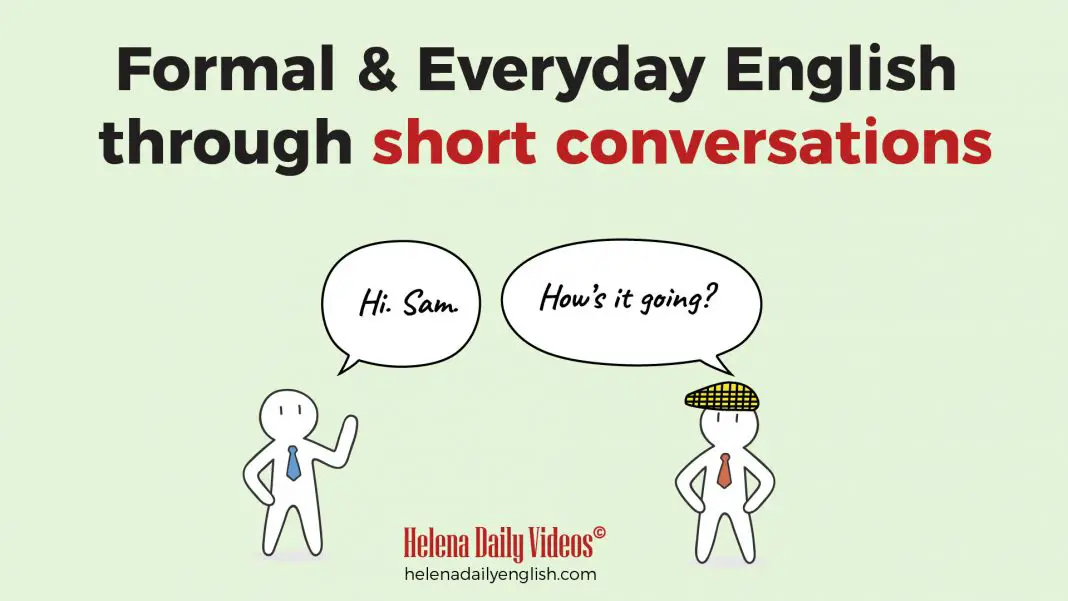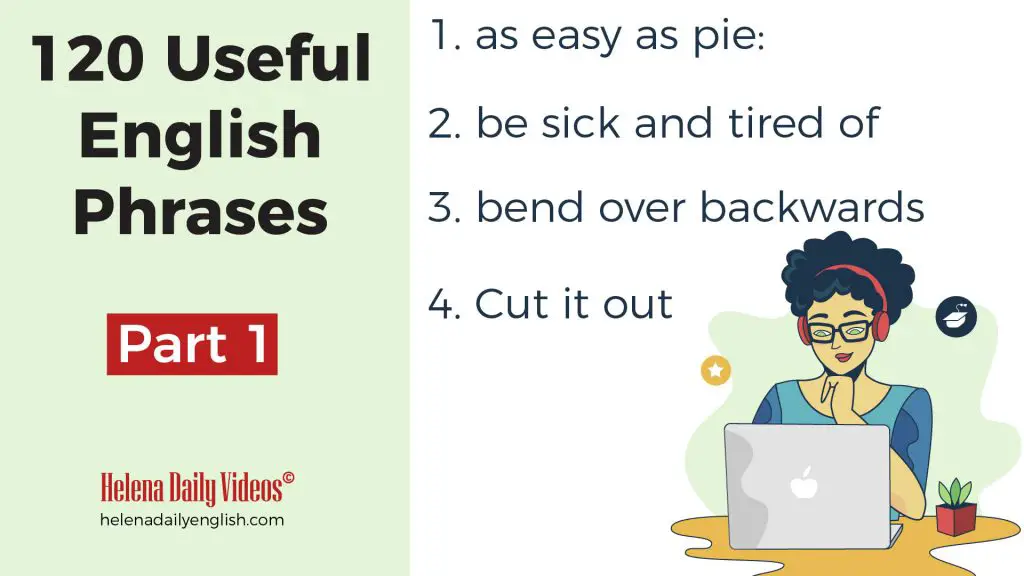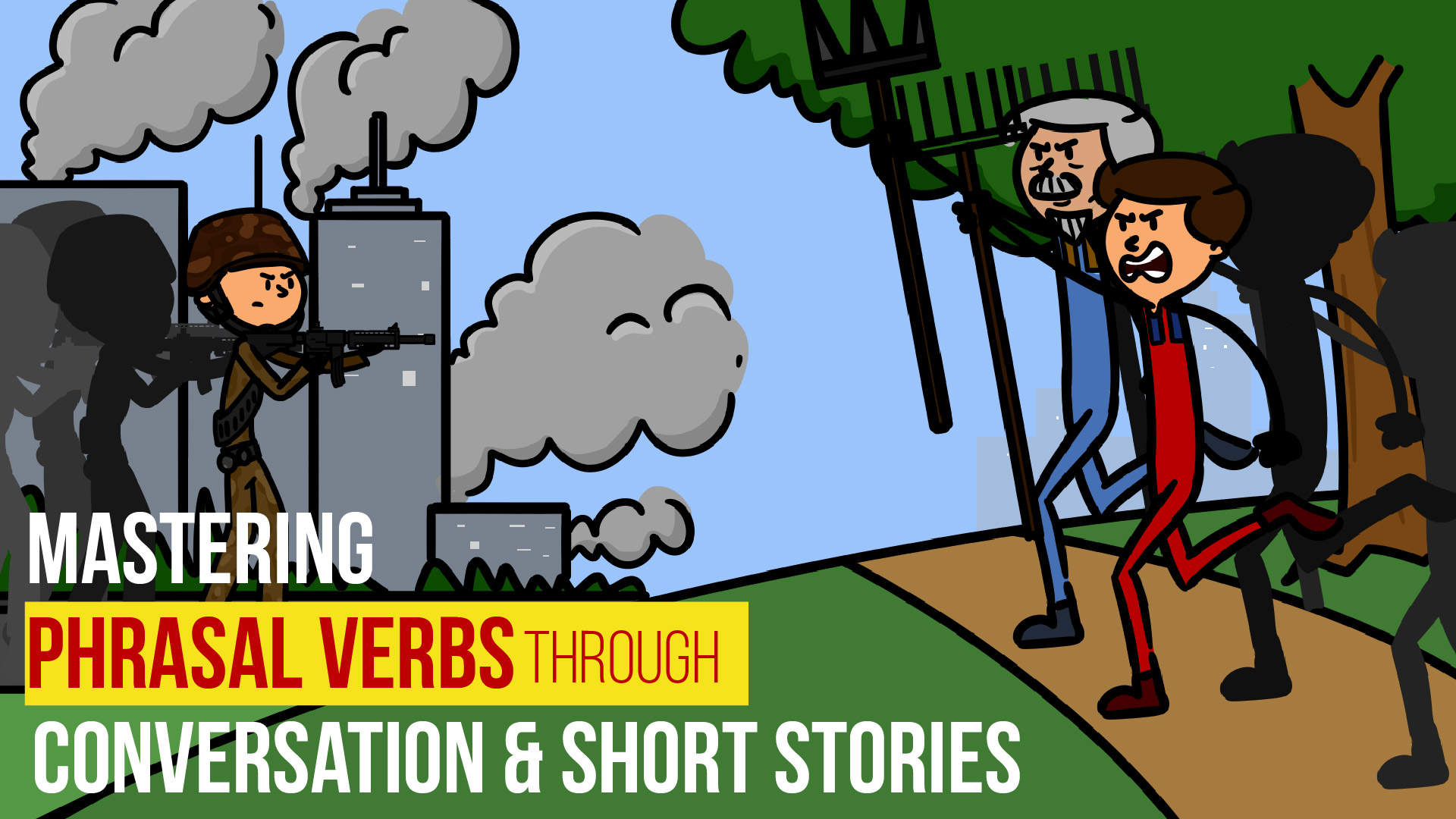Hi everyone,
In this lesson, we would like to share with you the conversations when we use formal and informal English. Before reading this post, please read the Words List of Formal and Everyday English first.
When to use formal and everyday English
We use formal English when writing essays for school, cover letters to apply for jobs, or emails and letters at work. And we use every day English (informal) when we use it with friends, children, and relatives.
The difference between formal and everyday English through short conversations
Formal English |
Everyday English |
| Topic: Feeling good | |
| 1. Hello. How are you?
2. Fine, thank you. And you? 3. Fine, thanks. 4. Oh no. I have to be going. I have a meeting at ten. 5. It was nice to see you. |
1. Hi. How’s it going?
2. Not bad. How about you? 3. Great. 4. Uh oh. I’ve got to get moving. I’ve got a meeting at ten. 5. It was great seeing you. |
| Topic: Feed bad | |
| 1. Hello. How are you?
2. I’m not doing very well. I have a cold. 3. Oh? I’m sorry to hear that. 4. Well, I’m sure I’ll recover soon. 5. Take care of yourself, and I hope you feel better soon. |
1. Hi. How’s it going?
2. Not so good. I’ve got a cold. 3. Oh? That’s too bad. 4. Well, I’ll be just like new in no ‘ time. 5. Take it easy, and I hope you get better soon. |
| Topic: Small talk | |
| 1. What floor would you like?
2. Fifth, please. 3. Beautiful weather we’re having, isn’t it? 4. Yes. I enjoy hot weather. 5. Well, have a nice day. |
1. What floor?
2. Fifth, please. 3. Great weather, isn’t it? 4. Yeah. I really love hot weather. 5. Well, have a good day |
| Topic: In an Elevator with an Acquaintance | |
| 1. Hello, Fred. How are you?
2. Fine. Just fine. And you? 3. Fine. How is work going? 4. Oh, it’s very busy. What about you? 5. Things are a little slow now, but I’m sure we’ll be busy again soon. Give my regards . to your family |
1. Hi, Fred. How are you doing?
2. Great. Just great. And you? 3. Great. How’s work? 4. Oh, it’s really crazy. How about you? 5. Things are a little slow now, but I’m sure they’ll pick up soon. Say hello to your family for me |
| Topic: Introduced at a Party | |
| 1. Juan Valdez, this is Carlos Ramirez. Carlos works for a computer company. Carlos, this is Juan. Juan is studying computers in college.
2. How do you do? 3. Hello. What do you plan to do when you complete college? 4. I’d like to become a computer programmer. What do you think about opportunities in that field? 5. I think the opportunities are very good. Here’s my card. Why don’t you give me a call when you graduate and I’ll see what I can do for you. |
1. Juan, this is Carlos. Carlos works for a computer company. Carlos, Juan. Juan’s studying computers in college.
2. How are you? 3. Hi. What do you plan to do when you finish college? 4. Become a computer programmer. What do you think my chances are in that field? 5. I think your chances are really good. Here’s my card. Give me a call when you graduate and I’ll see what I can do |
| Topic: Introduce yourself | |
| 1. Hello. I’m Tim Johnson.
2. It’s nice to meet you. I’m Steve Goldsmith. It’s a wonderful party. How do you know the host? 3. We play golf together. And you? 4. We met in college. What kind of work do you do? 5. I’m a businessman. What kind of work do you do? |
1. Hi. I’m Tim Johnson.
2. Nice to meet you. I’m Steve Goldsmith. Great party. How do you know the host? 3. We play golf together. How about you? 4. We met in college. What do you do for a living? 5. I’m a businessman. What do you do? |
| Topic: At work | |
| 1. Have you had an opportunity to look over my report yet?
2. Yes. As a matter of fact, I did. 3. What do you think? 4. I think you did a wonderful job. The sales figures you included were especially helpful. 5. Thank you very much. |
1. Have you had a chance to look over my report yet?
2. Uh huh. As a matter of fact, I did. 3. What do you think? 4. You did a super job. The sales figures were really helpful 5. Thanks. |
| Topic: Criticizing | |
| 1. What did you think of the movie?
2. Well, it was nothing special. 3. What was your criticism? 4. I thought the ending was terrible. I don’t like sad endings. 5. I agree. |
1. How’d you like the movie?
2. Oh, it was okay. 3. What didn’t you like? 4. I thought the ending was the pits. I hate sad endings. 5. Me too. |
Learn more:
- 120 English Phrases for Everyday Life Part 1
- 120 English Phrases for Everyday Life Part 2
- 120 English Phrases for Everyday Life Part 3
In general, if you want to speak English fluently like a native speaker the two things you should remember:
- You should learn more everyday words, phrases, even idioms, slang that English speakers often speak
- Practice your pronunciation every day and practice speaking English with your friends or yourself through the imitation method.






